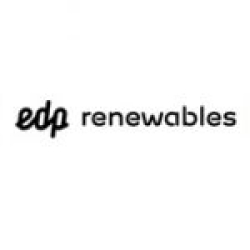EDP reinforces its ambition and is one of 28 major companies that commit to H2Zero at COP26. This pledge aims to accelerate the development and production of renewable hydrogen by the end of this decade.
EDP has a new strategic target for renewable hydrogen and predicts it will invest in projects that guarantee a further 1.5 GW of capacity by 2030. With this objective – assumed on Tuesday, November 9, during COP26, the United Nations Climate Conference in Glasgow – EDP becomes one of the 28 large companies that assume the H2Zero commitment of the WBCSD (World Business Council for Sustainable Development) in order to accelerate the development of renewable hydrogen on a global scale.
It is an important reinforcement of EDP’s ambition, for which the current presence in strategic markets (such as the Iberian Peninsula, the USA or Brazil) and in regions where there is a favorable context for the development of hydrogen projects will be decisive – such is the case of locations with good solar and wind resources, support infrastructure, proximity to industrial customers, favorable regulatory environment, among other conditions. The newly announced ambition reinforces the goals of EDP’s Strategic Plan, which already envisaged investing in 250 MW of hydrogen electrolyzers capacity by 2025.
Maintaining the goal of abandoning coal production by 2025 and being all green by 2030, EDP believes that these steps are decisive in an energy transition process that urgently needs to be accelerated.
“EDP, as the leader of the energy transition, is clearly aware that the fight against climate change is urgent and requires immediate action. That’s why we aim to guarantee 100% renewable energy production by 2030 and we are taking concrete steps to support the decarbonization of all sectors of the economy,” Miguel Stilwell d’Andrade, CEO of EDP, says. “Renewable hydrogen will play a crucial role in this path and there is no time to waste. The time to strengthen ambition and make it happen is now.”
The investment plan will thus involve the conversion of old coal-fired power stations into hydrogen centers, but also the investment in new production units. With this investment reinforcement, EDP hopes to contribute to a greater and faster decarbonization of the economy, especially in sectors where the electrification process is more difficult. A process that, as the WBCSD reinforces, requires unprecedented collaboration between the public and private sectors and the definition of clear and stable regulatory policies.
Jointly, the targets of companies that subscribe to the H2Zero commitment equal 25% of the decarbonization potential provided by hydrogen by the end of the decade, according to estimates by the Hydrogen Council. EDP is one of these 28 companies (among which are other energy companies such as Iberdrola, Enel, Engie, Shell or Total) whose contribution will be decisive for the decarbonization of the economy, one of the key themes on the agenda of the COP26 that ends this week. Hydrogen will, in fact, be one of the topics under debate this Tuesday, the day dedicated to Industry, with the participation of Miguel Setas, executive board member of the EDP group, in the conference “The Roadmap to Net-Zero with Hydrogen.”

